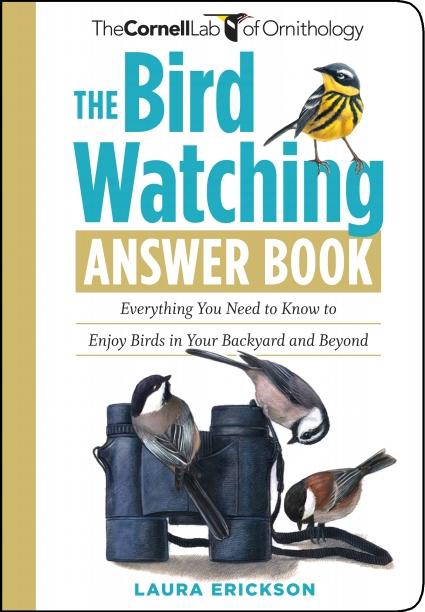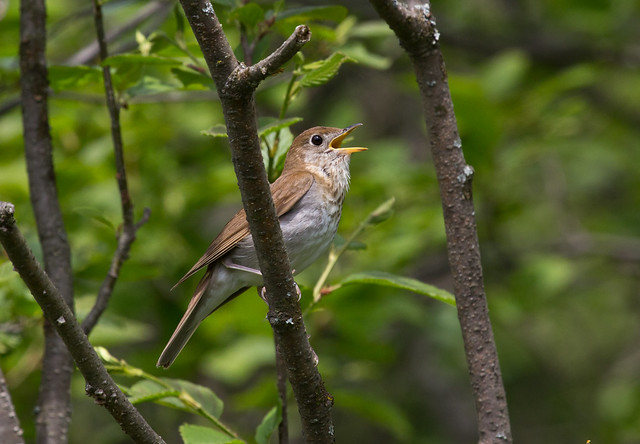98. Organize an army of birders who are willing to serve as birding ambassadors.

Although each individual serving as an ambassador for birds can do a great deal of good, a whole army of ambassadors can do much more. No one can be available around the clock, year after year, to answer questions, help novices, and inspire nonbirders to take up the hobby. Sometimes it’s discouraging to deal with the questions people ask, such as whether they should feed their hummingbirds artificial sweeteners rather than sugar so they don’t get fat (no, hummingbirds need the calories and carbohydrates in sugar), or whether it’s okay to pour a quarter cup of bleach into their birdbath to keep the water clean (no, bleach is toxic; it’s okay to use a bleach solution to clean the birdbath, but allow it to dry and then add clean, fresh water). Anyone dealing with the same questions over and over can suffer burnout.
But working with other birders, informally or as part of a birding club, to provide information to the general public in the form of community education classes or local field trips can be a service of inestimable value. When a local bird club has an office and a phone, it can provide valuable assistance to people with basic questions. Bird clubs and individuals can also provide answers to questions via email. Putting together a list of frequently asked questions for a pamphlet or website is also a good idea; for example, what to do about noisy woodpeckers, how to keep cardinals or robins from bashing into windows, and what to do when children find baby birds. Being able to refer people to wildlife rehabbers, government officials, and other professionals in the case of serious problems is also useful. [UPDATE: When I was employed at the Cornell Lab of Ornithology, I wrote a book, The Bird Watching Answer Book to provide solid answers to a great many common questions people ask.]
Many times, people ask me what kind of bird makes a particular sound. Over the years, I’ve figured out which birds people in my area are most likely to be asking about and can guess correctly at leas 80 or 90 percent of the time. But now I’ve got better tools. Over the phone, if I’m close to my computer or CD player, I can play recordings of the likely possibilities, holding the phone up to the speaker. It’s so satisfying to hear a caller say, “Yes! That’s it!” When I’m away from home, I just pull my Palm Pilot out of my pocket. [OBVIOUS UPDATE: nowadays, my smart phone] I’ve put bird sound recordings on it and can tap a few strokes and play each possibility until we find the right one. These are tools that a bird club or a small army of birding ambassadors can easily take advantage of.
Sharing our knowledge can be tiring, especially for introverts. When we find others who are willing to work together to provide information to the public, the task is easier for all of us.

From 101 Ways to Help Birds, published by Stackpole in 2006. Please consider buying the book to show that there is a market for bird conservation books. (Photos, links, and updated information at the end of some entries are not from the book.)